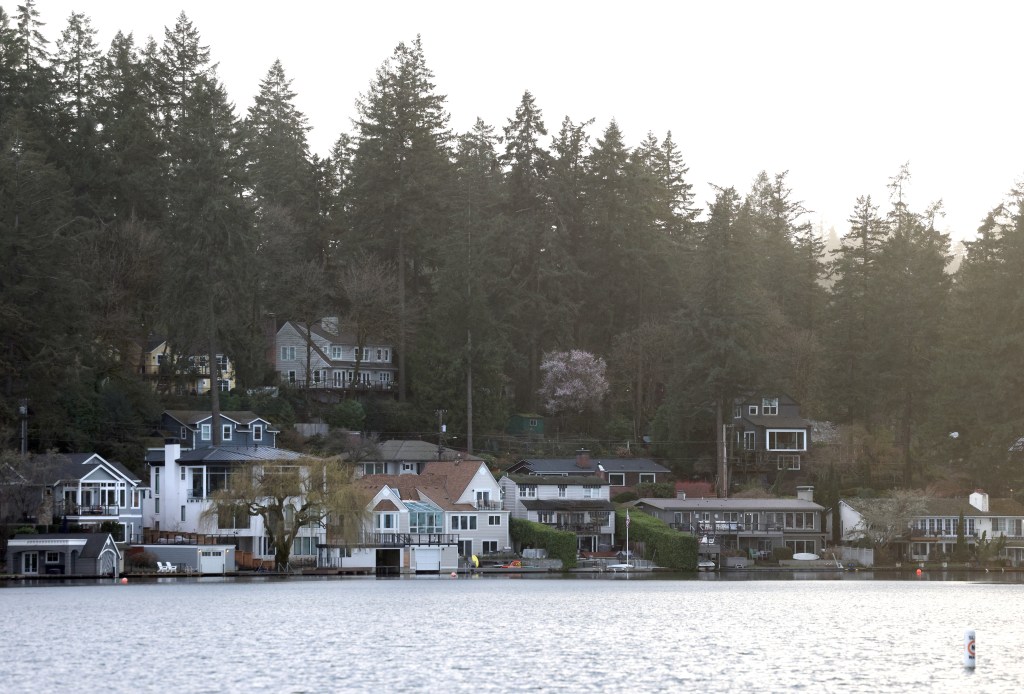Court rules that Lake Oswego, State of of Oregon and Lake Corporation are on the hook for $1.5 million in fees for lake case
Published 7:34 pm Friday, June 6, 2025

- The case over access to Oswego Lake has been ongoing since 2012. (Staff photo: Jonathan House)
The city of Lake Oswego, the State of Oregon and the Lake Corporation’s pleas that they should not have to pay the attorney fees of plaintiffs Todd Prager and Mark Kramer in the court battle over public access to Oswego Lake went unheeded.
Clackamas County Circuit Court Judge Kathi Steele ordered that all three parties must pay over $1.5 million for attorney fees the plaintiffs had incurred in a ruling issued Friday, June 6. Steele ruled that the Lake Corporation must pay 45% of costs while the city of Lake Oswego must pay 35% and the State of Oregon must pay 20%. Steele’s decision can be appealed to the Oregon Court of Appeals.
“I am pleased the court recognized the substantial pro bono efforts of our attorneys in vindicating public access rights over the past 13 years,” Prager told the Review via text message. “This case not only ensures public access to Oswego Lake, but sets a precedent for access rights to all of our state’s waterways. They deserve to be compensated for their selfless work on behalf of all Oregonians.”
The decision follows the conclusion of a two-part trial culminating in Steele ruling that the lake was navigable at the time of statehood and is therefore public. The second half of the trial determined that the city’s rules preventing access to the lake from a portion of Millennium Plaza Park were not lawful (the court determined the city’s rules preventing access at two other park properties abutting the lake could stand).
While the Lake Corporation is appealing the decision, the city decided not to and has since updated its rules to allow access at the park steps into the water. For many decades only Lake Corporation shareholders and easement holders had access to the lake other than at two swim parks (one of which is available to Lake Oswego residents and the other to Lake Oswego School District students and Lake Grove residents).
“While these are certainly large sums (the fees plaintiffs requested), when looking at the length of time that this case has been litigated – since 2012 – this represents nearly 13 years of accumulating attorney fees and costs. These totals come to an annual average of approximately $111,163.92 per year for attorney fees and $17,776.74 per year for costs, which does not appear quite as frightening,” Steel wrote.
The court also rejected the state and the city’s efforts to downplay their individual roles in the case, saying that the city was not a “minor player” as it had argued and that the state had supported the city’s efforts to prevent public access before 2019 and rejected the lake’s status as subject to public trust doctrine.
“The ordinance (the city’s resolution 12-12 that prevented lake access) was ultimately the only reason this litigation has continued for more than a decade. That negates the City’s position that it was a ‘minor player’ in the litigation,” Steele wrote, noting that the city had joined the Lake Corporation in dismissal motions, maintained “private lake” signs and that it is technically a shareholder of the Lake Corp.
Lake Oswego Mayor Joe Buck issued this statement in response to the ruling: “I appreciate the Judge’s work to equitably discern between the multiple parties, interests and issues, and the City Council will discuss the fee ruling in the near future with our legal counsel before taking any next steps.”
Steele also felt that the Lake Corporation should bear the largest share of the cost and noted that it is the only of the three parties to appeal her ruling ushering in public access to the Oregon Court of Appeals. She said the corporation should pay the most fees because it controlled and governed access to the lake and because it was the primary driver of the litigation.
“The Lake Corporation is essentially asking the Court to have the City of Lake Oswego – as well as its citizens and business owners – to bear the full cost of Plaintiff’s attorney fees while the Lake Corporation and its members would essentially also be held not responsible for those costs. Where is the equity in that? If the Lake Corporation does not prevail in its appeal, does it expect the City and its citizens and businesses to pay for that as well. Is it still protected because it is an intervenor? Again, where is the equity in that?” Steele wrote.
Still, Seele cut the amount of attorney fees the defendants would have to pay from what the plaintiffs requested by 10% out of concern for Lake Oswego residents who live around the lake being charged twofold for attorney fees related to the case.
The fees will be awarded to the law firms who worked on behalf of the plaintiffs including Richardson Adams, Sugarman Dahab and Landye Bennett Blumstein.
The Lake Corporation did not immediately respond to a request for comment.





